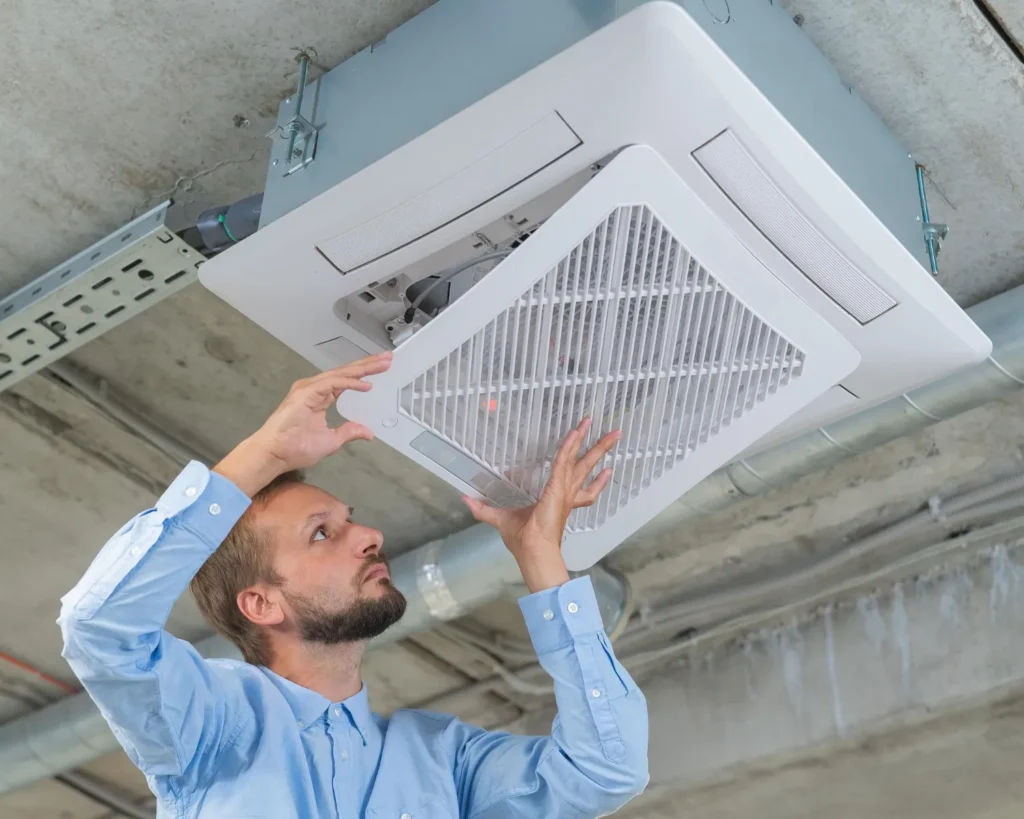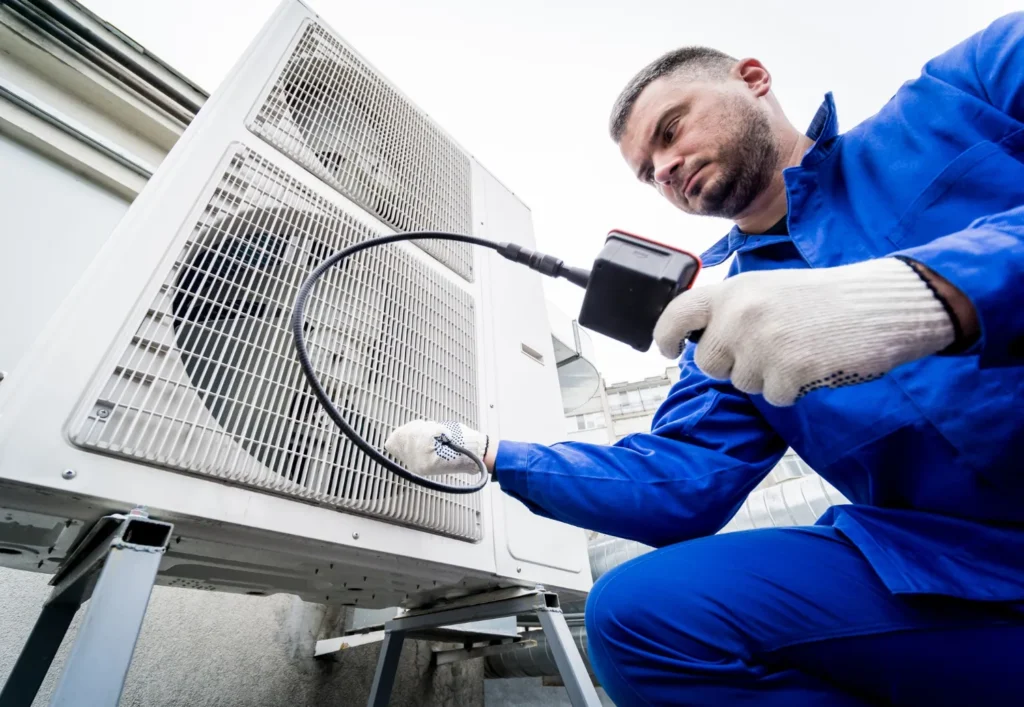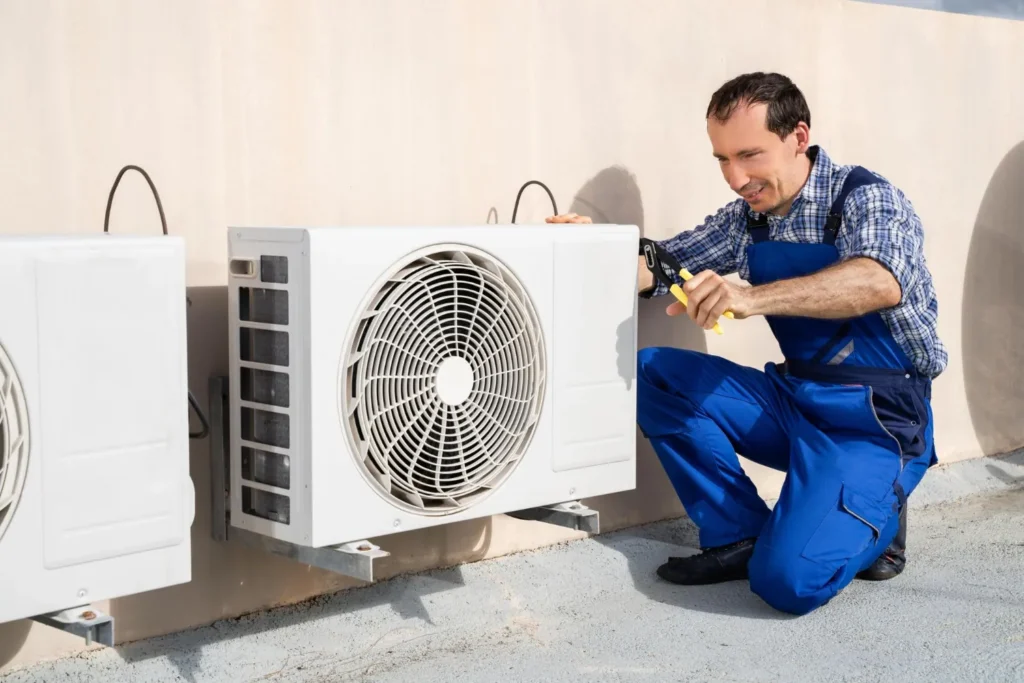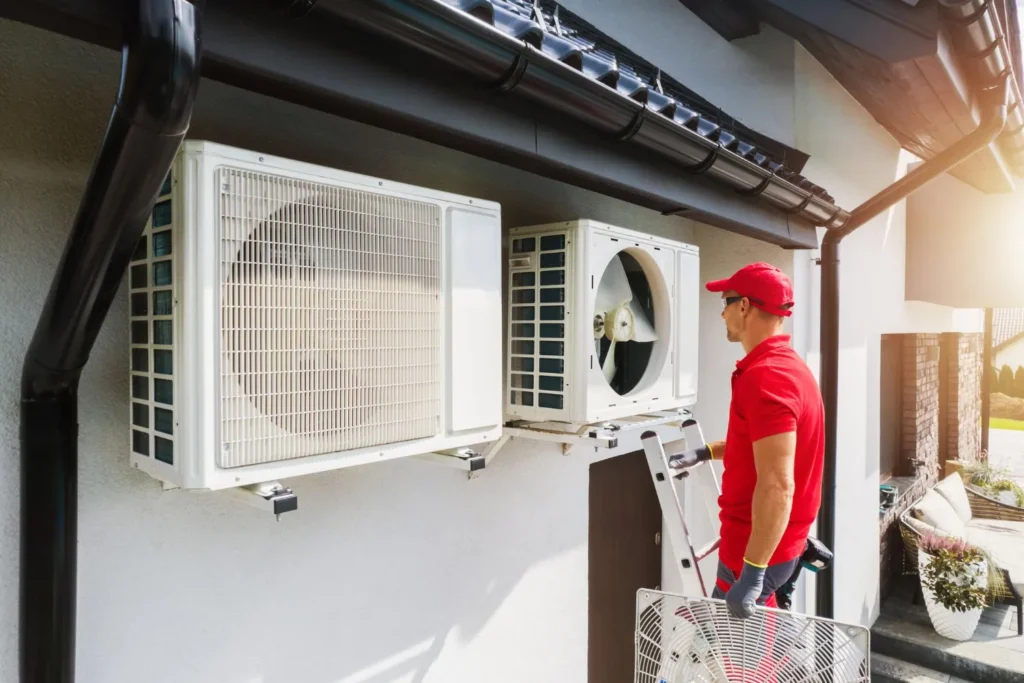In Houston, recognizing the signs your AC needs to be repaired can mean the difference between comfort and sweltering heat. Having a fully functional air conditioning (AC) system is absolutely crucial. The city’s relentless summer heat, characterized by high humidity and temperatures that frequently soar above 90°F, demands a robust and efficient cooling system. Identifying the early signs of AC malfunction is not just about ensuring comfort; it’s also crucial for avoiding substantial repair costs and extending the lifespan of your unit.
This comprehensive guide will explore various indicators of a failing AC system, providing specific and actionable advice tailored for Houston residents. From unusual noises and fluctuating temperatures to unexpected increases in energy bills, we’ll cover all the signs that your AC might be due for repair. We aim to help you understand these warnings so that you can address issues promptly, ensuring that your AC performs optimally even during the harshest days of summer. This guide is essential for anyone looking to maintain their calm in the face of Houston’s intense heat waves.
Table of Contents
Unusual Noises: Interpreting Acoustic Alerts

Unusual noises from your AC unit are often the first sign that something is wrong. A properly functioning AC unit usually runs quietly. Distinctive, abnormal sounds like grinding, squealing, or scraping indicate mechanical problems that require prompt attention. Here’s what these noises typically suggest:
Understanding the Sounds
- Grinding Noises: Often indicative of bearing issues within the motor.
- Squealing Sounds: This might signal that the belts connecting the motor to the blower are slipping or wearing out.
- Scraping Noises: This could point to a misalignment or looseness in the blower fan assembly.
Houston-Specific Considerations
Due to the extensive use of AC systems during Houston’s prolonged summers, mechanical components can degrade faster than in cooler climates. Therefore, routine preventative maintenance is crucial.
Proactive Tip
Regular seasonal inspections are vital to detect wear and tear. Should you start hearing any suspicious noises, it is crucial to consult a Houston-based HVAC professional immediately to prevent further damage and avoid potential system failures.
Insufficient Cooling: Tackling Inefficiency and Heat
When your AC unit struggles to cool your home, it can lead to significant discomfort, especially during Houston’s sweltering summers. Symptoms of cooling failure often indicate underlying issues that need immediate attention.
Symptoms of Cooling Failure
Suppose your AC unit struggles to combat the extreme Houston heat, leaving your indoor space uncomfortably warm. In that case, several issues might be the cause:
- Low Refrigerant Levels: Often due to leaks.
- Compressor Malfunctions: Crucial for circulating refrigerant and sustaining the cooling cycle.
- Obstructed Airflow: Resulting from dirty air filters or blocked condenser units.
Localized Advice
The intense humidity in Houston further burdens AC systems, compelling them to work harder not only to cool but also to dehumidify the air. This extra strain can aggravate existing issues.
Proactive Tip
Maintain regular cleaning or replacement of air filters and ensure an annual check-up of refrigerant levels and compressor functionality. Keep the area around condenser units precise to ensure unobstructed airflow. These preventive measures are essential, especially just before the peak of summer, to provide a seamless cooling experience.
Frequent Cycling: Preventing Excessive Wear and Tear

Frequent cycling, or short cycling, can lead to premature wear and increased energy costs. This issue is particularly problematic in Houston, where AC units are heavily relied upon almost year-round.
Understanding Cycling Issues
Frequent on-and-off cycling of your AC unit can lead to premature wear and elevate energy costs. It typically stems from:
- Oversized Units: Cool spaces too rapidly without adequately removing humidity, triggering frequent on-and-off cycles.
- Improperly Calibrated Thermostats: This can lead to inefficient temperature regulation.
- Clogged Air Filters: Restrict airflow, causing the unit to overheat and shut off prematurely.
ALSO READ: AC Short-Cycling Guide to Protecting Your Comfort and Your System
Houston’s AC Demands
In a city where AC is crucial nearly year-round, short cycling can severely reduce the efficiency and longevity of your system.
Proactive Tip
Ensuring that your AC unit is appropriately sized for your home is critical. Avoid the common pitfall of choosing an oversized unit under the misconception that it will provide better cooling. Regular maintenance, including air filter replacement and thermostat recalibration, is vital to prevent these issues and maintain efficient operation.
Elevated Energy Bills: Monitoring for Efficiency Loss
A sudden spike in your energy bills can indicate that your AC system is losing efficiency. Identifying the root cause can help restore your unit’s performance and reduce costs.
Signs of Increased Consumption
A sudden spike in your energy bills without a corresponding increase in usage is a telltale sign that your AC system is losing efficiency. This could be due to:
- Aging Components: Need more power to perform the same tasks.
- Leaky Ductwork: This allows cool air to escape, forcing your unit to work harder.
- Inefficient System Settings: Improper thermostat settings lead to unnecessary running times.
Proactive Tip
Regular audits of your energy usage can help pinpoint inefficiencies. Consider having a professional energy assessment to identify and rectify leaks and inefficiencies within your HVAC system.
Humidity Problems: Balancing Moisture Levels
Balancing indoor humidity levels is crucial for comfort and air quality. In Houston’s humid climate, your AC unit plays a significant role in managing indoor moisture.
Combatting Excessive Humidity
One of the critical functions of an AC unit, especially in humid climates like Houston’s, is to reduce indoor humidity levels. Signs that your AC is not adequately managing humidity include:
- Persistent Musty Odors: Indicating mold or mildew growth due to excessive moisture.
- The feeling of Stickiness or Clamminess: Within your indoor environment despite the AC running.
Proactive Tip
It’s essential to check that your AC system is correctly sized and that all components, particularly the evaporator coil, are functioning properly. Dehumidifiers can also be integrated into your HVAC system to help control humidity levels effectively.
Choosing the Right AC Repair Service in Houston

Selecting the right HVAC professional is crucial for effective ac needs repairs and maintenance. A reliable service provider ensures that your AC unit is restored to optimal performance.
Finding the Best Service
When your AC needs to be repaired, choosing the right service provider in Houston can make all the difference. Look for companies with certified technicians who have extensive experience, specifically in AC systems. Reliable services often showcase transparent pricing, detailed contracts, and solid warranties. Check online reviews and ask for references to gauge their reputation. A trustworthy company should provide a thorough diagnosis and a clear explanation of the necessary ac needs repair. They should also be licensed and insured, ensuring they meet local standards and are prepared for any job-related contingencies.
Preventative Measures to Extend AC Lifespan
Regular maintenance is essential to extend the lifespan of your AC unit and ensure it operates efficiently. Taking proactive steps can prevent many common issues.
Routine Maintenance Tips
Extending the lifespan of your AC unit not only enhances its efficiency but also minimizes unexpected breakdowns. Regular maintenance, such as cleaning or replacing filters, checking refrigerant levels, and ensuring the condensate drain is not blocked, is crucial. Schedule professional inspections at least once a year before the peak AC season. Professionals can catch issues like minor leaks or electrical problems before they worsen. Additionally, keeping the area around your AC unit clear of debris and foliage can improve airflow and prevent strain on your system.
The Impact of Houston’s Humidity on AC Units
Houston’s high humidity levels present unique challenges for AC units. Understanding these challenges can help you maintain your system more effectively.
Challenges Posed by Humidity
Houston’s high humidity levels can be a significant challenge for AC units, often forcing them to work harder, which can lead to quicker wear and tear. Humidity can cause excessive condensation, which might lead to issues like mold in the ductwork or even electrical problems within the unit. To combat this, consider using a dehumidifier in conjunction with your AC system or opt for AC models with built-in dehumidification processes. Ensuring your home is adequately insulated and sealed can also prevent humid outdoor air from entering, thus easing the load on your AC.
Cost Considerations of AC Repair Vs Replacement
Deciding whether to AC needs to be repaired or replaced your AC unit involves careful consideration of costs. Weighing the pros and cons can help you make an informed decision.
Evaluating Your Options
Deciding whether to AC needs to be repaired or AC needs to be replaced involves several cost considerations. Initial repair costs may be less expensive compared to replacing an entire unit, but if your AC is old, repairs might be a short-term fix. Evaluate the age of your unit, the nature of repairs, and the potential increase in energy efficiency a new model could offer. Newer units are often more energy-efficient, which can save money on utility bills in the long run. A good rule of thumb is that if the cost of repair is close to 50% of the value of a new unit, replacement might be the more economical choice.
Common Misconceptions About AC Repair

Several myths about AC repair can mislead homeowners. Clarifying these misconceptions can help you make better decisions about AC maintenance.
There are several myths surrounding AC repair that can lead homeowners astray. One common misconception is that AC units only need servicing when they stop working. In reality, regular maintenance can prevent many issues from developing. Another myth is that bigger AC units perform better; however, an oversized unit can frequently cycle on and off, reducing efficiency and increasing wear. Lastly, some believe that refilling refrigerant is a routine service, but in a properly sealed system, refrigerant should stay active, and needing more often indicates a leak.
Conclusion – AC Needs To Be Repaired
Ensuring that your AC unit is in optimal working condition is paramount in Houston, where the heat can be relentless. Recognizing the signs of AC Needs to be repaired early can save you from discomfort during the hottest days of the year and prevent unexpected financial burdens. Regular maintenance, coupled with immediate responses to any signs of trouble, will keep your system efficient and effective, providing a relaxed and comfortable refuge in the heat of Houston summers. By staying vigilant and proactive, you can enjoy a reliable and efficient cooling system that stands the test of time and temperature.
FAQs About AC Needs To Be Repaired
What are the most common signs that my AC unit needs repair in Houston?
Common signs Air conditioners need repair include unusual noises, insufficient cooling, frequent cycling, elevated energy bills, and humidity problems. If you notice any of these issues, it’s crucial to address them promptly to maintain your AC’s efficiency and performance.
How often should I schedule maintenance for my AC unit to prevent issues?
It’s recommended to schedule professional maintenance for your AC unit at least once a year, preferably before the peak summer season. Regular check-ups can help detect and fix minor issues before they become significant problems.
Why is my AC unit making strange noises, and what do they indicate?
Strange noises like grinding, squealing, or scraping usually indicate mechanical problems, such as bearing issues, slipping belts, or misaligned blower fans. To prevent further damage, a professional should address these noises immediately.
How can I improve the efficiency of my AC unit in Houston’s humid climate?
To improve efficiency, regularly replace air filters, clean the evaporator coil, seal any duct leaks, and ensure the outdoor unit is free from debris. Using a dehumidifier can also help manage indoor humidity levels, reducing the strain on your AC unit.
When should I consider replacing my AC unit instead of repairing it?
Consider replacing your AC unit if it is over 10-15 years old, requires frequent repairs, or if the cost of a significant repair is close to 50% of the price of a new unit. Newer models are more energy-efficient and can save money on utility bills in the long run.
